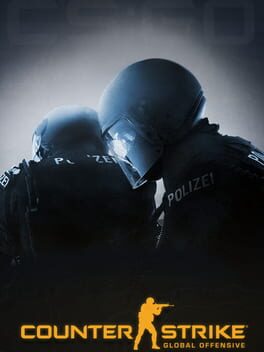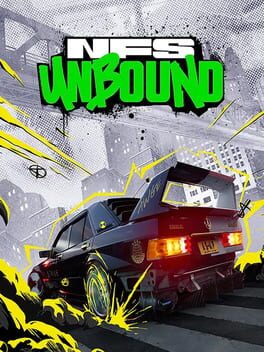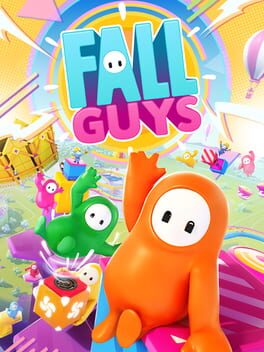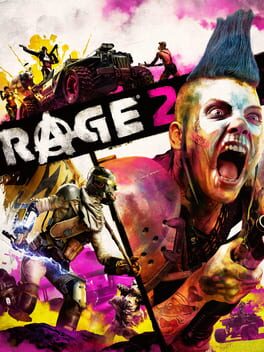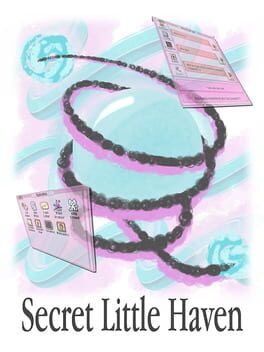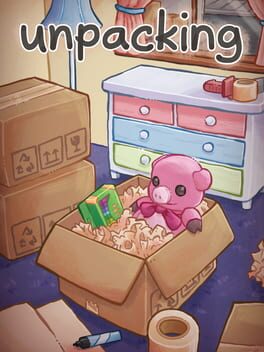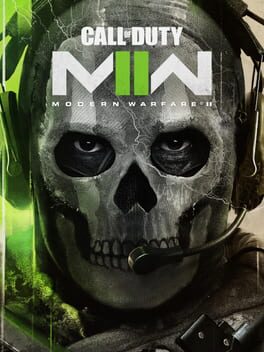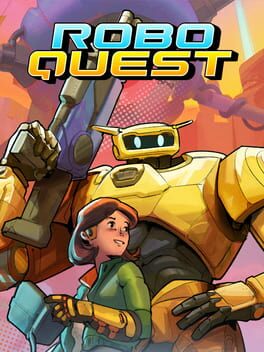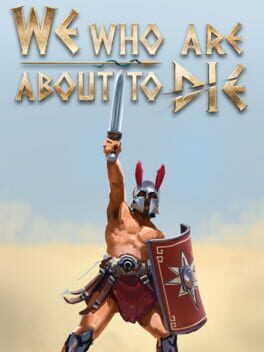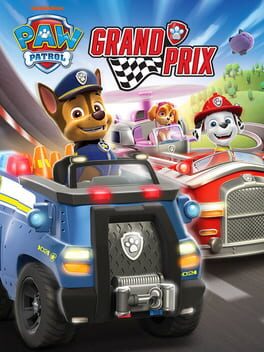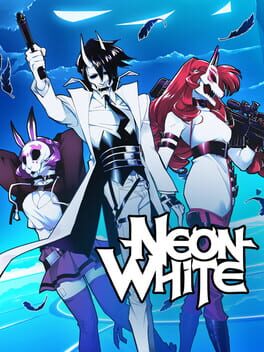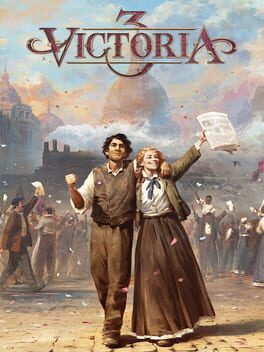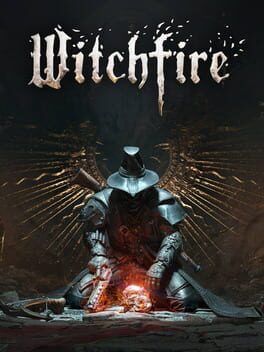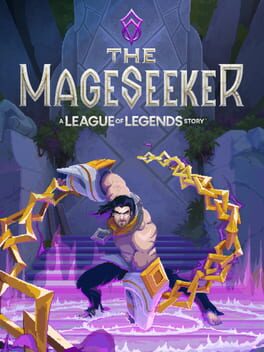jobosno
BACKER
2016
I think a lot of the reception to this game is from the sheer weight of expectations - many fans came in expecting more of the same mechanics and story beats that FromSoft clearly isn’t interested in anymore, and others still came in expecting something new and fresh that would justify its existence as a whole new game in the Dark Souls series. FromSoft seems to have done a lot more for the first group than they did for the second, but they’re still close enough to straddling the line for both to have some significant complaints. Compared to DS1, the path to a boss feels much more like a gauntlet that you just have to get through, instead of needing to respect each room for providing its own threat. The bosses definitely got more attention - they still feel like Dark Souls bosses, but the (over)abundance of multi-phase bosses makes it feel like this is really where the challenge was supposed to lie this time around.
The combat is definitely faster than previous entries and while I know a lot of those who played Bloodborne felt the speed wasn’t suited to this game, I never really felt that there was a problem with it. The increased speed of the bosses makes me actually feel like I have to pay constant attention to the bosses since they’re able to keep the pressure on at all times, instead of getting little reprieves here and there as you get some space between you. This seems to mostly come down to personal preference, but there’s a lot here that works in favor of the increased speed, including the decision to actually let you move around (at a much faster speed) while using your Estus Flasks - that teensy bit of movement rarely makes a difference between life and death, but it does factor a little bit into your calculus of when healing feels safe.
What I respect DS3 the most for is its world. I’ve seen a lot of complaints about hollow fanservice and while some callbacks fit better than others, I think From has done a good job of integrating the old items, locations, etc into the story. Dark Souls 3, better than any other entry, really sells that the world is crumbling. Part of it is the callbacks, showing you things you’ve seen before and realizing that I just walked right through old Firelink and I didn’t even recognize it. Part of it is that the story feels tired right off the bat - not in that it’s trite, but in that from the second your character stands up at the beginning of the game, there’s a sense that everything around you has already been there for uncountable years, and that if it were to blink out of existence tomorrow it would only make sense. While this sensation of the game “playing the hits” seems to have turned many off from the game, it feels like the perfect encapsulation of the games themes about unnaturally prolonging a natural cycle - the hollow imitations of characters, institutions, and ideas from previous games feel like the world and its inhabitants holding it all together the only way they know how - by grasping at the past, taking these legendary figures and concepts and only being able to produce a shallow facsimile.
It makes me feel as if I’m seeing a different game from the others. Don’t get me wrong, you don’t have to enjoy this game just because I enjoy it. But I wonder if people who suggest the game doesn’t know what it’s doing with these callbacks were so blinded by this recognition of previous locations that they missed obvious markers all over the game. Linking the fire produces a pathetic, withering flame instead of the overwhelming explosion that we saw in DS1. The game retreading a location you already saw in the same game by bringing out a version of the Cemetery of Ash where everything is just...wrong. Showing you a half-eaten Gwyndolin, dodging modified versions of his own abilities, playing a corrupted version of his theme. While it’s all an excellent continuation of themes present in the games, it feels like the game itself is showing you what happens to everything with time, including the games you’re playing - do you unnaturally prolong the series against its will until it’s just a parody of its old self, or do you let it die with dignity and be replaced by new, unknown things?
I don’t want another Dark Souls game. I like that the game chose to play us a few of the songs we already knew on the way out, that it still managed to give us a new-ish take on the same formula, and that it’s bowing out before becoming a mangled mess, exhausting anything interesting the IP had to offer. It is, to me, the perfect way to cap off this particular series, and I respect FromSoft immensely for doing it with dignity - before they had dispelled the mysteries of the world, before becoming a no-rough-edges yearly fixture, before anyone can figure out how multiplayer really works.
The combat is definitely faster than previous entries and while I know a lot of those who played Bloodborne felt the speed wasn’t suited to this game, I never really felt that there was a problem with it. The increased speed of the bosses makes me actually feel like I have to pay constant attention to the bosses since they’re able to keep the pressure on at all times, instead of getting little reprieves here and there as you get some space between you. This seems to mostly come down to personal preference, but there’s a lot here that works in favor of the increased speed, including the decision to actually let you move around (at a much faster speed) while using your Estus Flasks - that teensy bit of movement rarely makes a difference between life and death, but it does factor a little bit into your calculus of when healing feels safe.
What I respect DS3 the most for is its world. I’ve seen a lot of complaints about hollow fanservice and while some callbacks fit better than others, I think From has done a good job of integrating the old items, locations, etc into the story. Dark Souls 3, better than any other entry, really sells that the world is crumbling. Part of it is the callbacks, showing you things you’ve seen before and realizing that I just walked right through old Firelink and I didn’t even recognize it. Part of it is that the story feels tired right off the bat - not in that it’s trite, but in that from the second your character stands up at the beginning of the game, there’s a sense that everything around you has already been there for uncountable years, and that if it were to blink out of existence tomorrow it would only make sense. While this sensation of the game “playing the hits” seems to have turned many off from the game, it feels like the perfect encapsulation of the games themes about unnaturally prolonging a natural cycle - the hollow imitations of characters, institutions, and ideas from previous games feel like the world and its inhabitants holding it all together the only way they know how - by grasping at the past, taking these legendary figures and concepts and only being able to produce a shallow facsimile.
It makes me feel as if I’m seeing a different game from the others. Don’t get me wrong, you don’t have to enjoy this game just because I enjoy it. But I wonder if people who suggest the game doesn’t know what it’s doing with these callbacks were so blinded by this recognition of previous locations that they missed obvious markers all over the game. Linking the fire produces a pathetic, withering flame instead of the overwhelming explosion that we saw in DS1. The game retreading a location you already saw in the same game by bringing out a version of the Cemetery of Ash where everything is just...wrong. Showing you a half-eaten Gwyndolin, dodging modified versions of his own abilities, playing a corrupted version of his theme. While it’s all an excellent continuation of themes present in the games, it feels like the game itself is showing you what happens to everything with time, including the games you’re playing - do you unnaturally prolong the series against its will until it’s just a parody of its old self, or do you let it die with dignity and be replaced by new, unknown things?
I don’t want another Dark Souls game. I like that the game chose to play us a few of the songs we already knew on the way out, that it still managed to give us a new-ish take on the same formula, and that it’s bowing out before becoming a mangled mess, exhausting anything interesting the IP had to offer. It is, to me, the perfect way to cap off this particular series, and I respect FromSoft immensely for doing it with dignity - before they had dispelled the mysteries of the world, before becoming a no-rough-edges yearly fixture, before anyone can figure out how multiplayer really works.
"Time is wasted when one views it from a subject position whose ambitions the time in question was not dedicated to fulfilling." -Paul McAdory
CSGO is the first game I ever hit 1000 hours in, a feat I admittedly hope I will not replicate even one more time, as I've not yet fully reckoned with how significant a chunk of my life I've spent on beaming the same light patterns into my eyes over and over again. That being said, I've definitely made some progress in accepting its consequences.
At 26, I'm not old enough to reasonably be called "old" by anyone who can legally drive. I am, however, old enough to regret life decisions that prevented me from experiencing new things when I was younger. Those 1000 hours of Counter-Strike spread out over my handful of high school years seem unfathomably wasteful. I didn't go to prom. I didn't really try to make more friends or date anyone, and when I did I didn't really go out of my way to organize things involving those people. In college, I began dating an old friend from high school, and she had plenty of money saved up from her high school jobs. I had spent all mine on keys, cases, and skins.
What did I gain from it? I can tell you at least two stupid meme callouts from each map. I can tell you from memory how to create ridiculous, multi-phase keybinds in the console. I can tell you about the AUGpocalypse, or about watching Segura vids and debating whether or not it was phoon. I can tell you all about the stupid tricks you used to be able to use on Vertigo to out-meme the other team.
What did I gain from it? During a time where I was horribly depressed but failed to realize it, I was able to squeeze genuine joy out of booting up the same program over and over, one of the few that would run on my shitty laptop. It provided me an opportunity to feel like I was an expert on something at a time where I felt useless in every way that I thought would matter.
What did I gain from it? I have close friends from CSGO that have outlasted most of my high school friends. Even after dropping the game, I've made new friends and even furthered my career by talking about it with others who are familiar. Fond memories of the game have helped me break the ice with new people and serve as a reminder of how strong my friendship still is with people I met all those years ago.
I said earlier that I don't really want to hit 1000 hours in another game at this point, and I'm sticking to it. At this point in my life, I value varied experiences too highly to dedicate that much time to one thing. But I do think I'm finally able to believe that all that time wasn't wasted, that the things I've done can have value even if you're not checking items off a bucket list or generating profit for someone. It's about damn time I stop worrying about this.
CSGO is the first game I ever hit 1000 hours in, a feat I admittedly hope I will not replicate even one more time, as I've not yet fully reckoned with how significant a chunk of my life I've spent on beaming the same light patterns into my eyes over and over again. That being said, I've definitely made some progress in accepting its consequences.
At 26, I'm not old enough to reasonably be called "old" by anyone who can legally drive. I am, however, old enough to regret life decisions that prevented me from experiencing new things when I was younger. Those 1000 hours of Counter-Strike spread out over my handful of high school years seem unfathomably wasteful. I didn't go to prom. I didn't really try to make more friends or date anyone, and when I did I didn't really go out of my way to organize things involving those people. In college, I began dating an old friend from high school, and she had plenty of money saved up from her high school jobs. I had spent all mine on keys, cases, and skins.
What did I gain from it? I can tell you at least two stupid meme callouts from each map. I can tell you from memory how to create ridiculous, multi-phase keybinds in the console. I can tell you about the AUGpocalypse, or about watching Segura vids and debating whether or not it was phoon. I can tell you all about the stupid tricks you used to be able to use on Vertigo to out-meme the other team.
What did I gain from it? During a time where I was horribly depressed but failed to realize it, I was able to squeeze genuine joy out of booting up the same program over and over, one of the few that would run on my shitty laptop. It provided me an opportunity to feel like I was an expert on something at a time where I felt useless in every way that I thought would matter.
What did I gain from it? I have close friends from CSGO that have outlasted most of my high school friends. Even after dropping the game, I've made new friends and even furthered my career by talking about it with others who are familiar. Fond memories of the game have helped me break the ice with new people and serve as a reminder of how strong my friendship still is with people I met all those years ago.
I said earlier that I don't really want to hit 1000 hours in another game at this point, and I'm sticking to it. At this point in my life, I value varied experiences too highly to dedicate that much time to one thing. But I do think I'm finally able to believe that all that time wasn't wasted, that the things I've done can have value even if you're not checking items off a bucket list or generating profit for someone. It's about damn time I stop worrying about this.
Bits and pieces of this are pretty interesting, and I'm happy to see (between this and Heat) those running the NFS series identify the open space for a racing game that leans hard into the spectacle of street racing. Heat felt like EA (and Ghost Games) dipping their toes in the water, and this feels more like jumping right in - a greater commitment to a street art aesthetic, streetwear, music (didn't really expect to hear clipping. on a Need for Speed soundtrack), the whole nine. Does it work? Kinda.
It's definitely the closest thing to NFS Underground that has existed since the release of those games, and I do genuinely believe that the cel-shaded style of the people (and some mid-race effects) works really well to give the game some character. There's still a feeling of sanding off the rough edges that might scare off the suits, but overall it feels like the developers have tried to make something that they think is cool, and they are a lot closer to the mark than most AAA games get. I do wish they cut back on the talking - especially notable is the fact that the game alludes to municipal politics WAY more than you'd expect from a game that is trying to be trendy, but if it surprises you that "the mayor fucking HATES racing" is a plot point in a Need for Speed game, then I'm not really sure what to tell you.
I don't really want to hype this up too much - your car typically feels like the tires are made of either ice or glue, the game itself often looks fuzzy due to the way effects/filters are used, and even gentle curves often require that you hit the brakes pretty hard - but the core is pretty interesting and I'd really like to see them try to build on what's here for future games. Right now the game simply cares too much to be truly cool, but they're on the right track for giving modern NFS an identity separate from other big-name racing series. I still kinda hate the way cars handle in the newer NFS iterations, but I'm seeing a lot of people offering praise for that specific element of the NFS Unbound experience, so maybe in a few years we'll see this franchise (re-)develop an even larger, dedicated audience of people who are less interested in sleek, unmodified hypercars and more interested in turning the car itself into a form of expression all its own.
It's definitely the closest thing to NFS Underground that has existed since the release of those games, and I do genuinely believe that the cel-shaded style of the people (and some mid-race effects) works really well to give the game some character. There's still a feeling of sanding off the rough edges that might scare off the suits, but overall it feels like the developers have tried to make something that they think is cool, and they are a lot closer to the mark than most AAA games get. I do wish they cut back on the talking - especially notable is the fact that the game alludes to municipal politics WAY more than you'd expect from a game that is trying to be trendy, but if it surprises you that "the mayor fucking HATES racing" is a plot point in a Need for Speed game, then I'm not really sure what to tell you.
I don't really want to hype this up too much - your car typically feels like the tires are made of either ice or glue, the game itself often looks fuzzy due to the way effects/filters are used, and even gentle curves often require that you hit the brakes pretty hard - but the core is pretty interesting and I'd really like to see them try to build on what's here for future games. Right now the game simply cares too much to be truly cool, but they're on the right track for giving modern NFS an identity separate from other big-name racing series. I still kinda hate the way cars handle in the newer NFS iterations, but I'm seeing a lot of people offering praise for that specific element of the NFS Unbound experience, so maybe in a few years we'll see this franchise (re-)develop an even larger, dedicated audience of people who are less interested in sleek, unmodified hypercars and more interested in turning the car itself into a form of expression all its own.
2020
You're telling me that two years after this game was unceremoniously shoved into its "Former Game of the Week"-themed grave, we're trying to bring it back? I won't stand for it.
I would've assumed that a game like this needs a hook, that the minigames need to actually be good, but after two years you can now play Tip Toe with friends and I'm not really convinced that that's enough to redeem the experience. Winning is still primarily the consequence of lucking out and not getting griefed into the sun, rather than a reward for actually doing anything right during the course of the minigames.
Maybe I just hate fun? Definitely a possible answer, but I'm mostly tired of streamers as tastemakers. I don't care about the latest Free-to-Play battle pass, no matter how many Hatsune Miku cosmetics or Lebron Jameses you put in. Release my friends, demon, I want to play games with them again.
I would've assumed that a game like this needs a hook, that the minigames need to actually be good, but after two years you can now play Tip Toe with friends and I'm not really convinced that that's enough to redeem the experience. Winning is still primarily the consequence of lucking out and not getting griefed into the sun, rather than a reward for actually doing anything right during the course of the minigames.
Maybe I just hate fun? Definitely a possible answer, but I'm mostly tired of streamers as tastemakers. I don't care about the latest Free-to-Play battle pass, no matter how many Hatsune Miku cosmetics or Lebron Jameses you put in. Release my friends, demon, I want to play games with them again.
2019
Most of what I experienced in Rage 2 is baffling to me. The first time I played this game, I only made it 20 minutes in before I had to close it due to the worst case of secondhand embarrassment I've ever experienced. For some reason, I did come back.
Every single line, every individual plot point of this story is like it was written by two 12-year-olds after marathoning the Transformers movies and watching someone else play two hours of DOOM.
Games like this reveal to me that it's relatively easy to stumble into greatness with a game that strips away the "fluff" that comes with your typical AAA game. Just Cause 2 kicked ass because it seemed like it cared about its story less than the player even did, and after playing this (and the post-2010 Just Cause games) I'm starting to believe that Avalanche just doesn't know how to make a "conventional" game.
Every single line, every individual plot point of this story is like it was written by two 12-year-olds after marathoning the Transformers movies and watching someone else play two hours of DOOM.
Games like this reveal to me that it's relatively easy to stumble into greatness with a game that strips away the "fluff" that comes with your typical AAA game. Just Cause 2 kicked ass because it seemed like it cared about its story less than the player even did, and after playing this (and the post-2010 Just Cause games) I'm starting to believe that Avalanche just doesn't know how to make a "conventional" game.
2018
This is such a convincing depiction of confused teens & young adults trying to figure themselves out that it feels... viscerally real at times. Sitting there, biting your nails waiting for them to finish typing. Holding two conversations simultaneously, waiting for the drama from the first conversation to somehow spill over into the second conversation. Trying to convince your parents that yes, the people you've met online are genuine friends and no, you're not giving out the family address. I've never been too involved in fandom spaces and have never written fanfic in my life, but I held my breath as Alex was waiting for feedback on hers.
Admittedly, a large part of this is presentation - the dialogue choices are mostly there to give you your choice of emote flair on a preset message and thus aren't really significant choices, save for a few occasions. The narrative can be a little clunky and for people who didn't spend time on the internet pre-2008 I imagine the writing could come off as too "quirky", but it's such an emotionally honest game that I'm willing to forgive an occasional plot contrivance. I may be lucky enough to feel like I was assigned the right gender when I was born, but it doesn't mean that this story is at all unfamiliar - my friends and I too caught up in our own heads, fucking up in our efforts to be there for a friend while wanting to vent our own thoughts. And it's because I remember the experience that the presentation does so much to sell the story here - when I was this age I was also staring at some austere chat client, trying to figure out how to respond to a dear friend when literally all I can come up with is a crude translation of my teenage brain just fucking screaming.
Recommended for anyone who spent their formative years on Yahoo Messenger.
Admittedly, a large part of this is presentation - the dialogue choices are mostly there to give you your choice of emote flair on a preset message and thus aren't really significant choices, save for a few occasions. The narrative can be a little clunky and for people who didn't spend time on the internet pre-2008 I imagine the writing could come off as too "quirky", but it's such an emotionally honest game that I'm willing to forgive an occasional plot contrivance. I may be lucky enough to feel like I was assigned the right gender when I was born, but it doesn't mean that this story is at all unfamiliar - my friends and I too caught up in our own heads, fucking up in our efforts to be there for a friend while wanting to vent our own thoughts. And it's because I remember the experience that the presentation does so much to sell the story here - when I was this age I was also staring at some austere chat client, trying to figure out how to respond to a dear friend when literally all I can come up with is a crude translation of my teenage brain just fucking screaming.
Recommended for anyone who spent their formative years on Yahoo Messenger.
2021
Mostly impressed by the people who are able to find this relaxing. If the game weren't so insistent on outlining everything in little red lines I would probably be endorsing it as a little therapeutic adventure, but as time went on I found myself just flying through the levels, taking all the shit and putting it on the floor so I could just see those red lines as quickly as possible and figure out why the MC is so damn insistent that putting the microwave 8 feet up on top of a cabinet is better than leaving it on the countertop.
I really enjoyed one or two of these, mostly the ones with the most room for creativity, but unfortunately the game is a lot more interested in providing a dump truck full of little trinkets for you to use to cobble together a story. I don't think this is inherently bad! But I had a lot more fun arranging the GF's collection of horror movie merch than I did finding spots for the horribly bland MC's collection of Eiffel Tower souvenirs. There are a handful of very obvious plot points that nobody is going to miss, but it seems that most of what people enjoy about this game is the story that they've projected onto it. There's a chapter where the main character moves in with The Worst Video Game Boyfriend of the Year who the devs tried very hard not to make "too cartoonishly terrible" and his biggest crimes are... picking an overly grayscale apartment and having hobbies that are a little too "adult Redditor"? Zero sympathy for the main character trying to hang her movie poster-sized diploma in every apartment for the next 20 years after she graduates. Under the bed is absolutely the perfect spot. These two deserve each other.
Yeah, I've pretty thoroughly soured on this game at this point, having played through the whole thing and mostly feeling like the game doesn't have a real point that it's making. Life events happen? You can tell a lot about a person through their belongings? Clutter bad? Really makes you think! I could tell you almost nothing about this person, but I know enough to find them deeply annoying. The power of games!
I really enjoyed one or two of these, mostly the ones with the most room for creativity, but unfortunately the game is a lot more interested in providing a dump truck full of little trinkets for you to use to cobble together a story. I don't think this is inherently bad! But I had a lot more fun arranging the GF's collection of horror movie merch than I did finding spots for the horribly bland MC's collection of Eiffel Tower souvenirs. There are a handful of very obvious plot points that nobody is going to miss, but it seems that most of what people enjoy about this game is the story that they've projected onto it. There's a chapter where the main character moves in with The Worst Video Game Boyfriend of the Year who the devs tried very hard not to make "too cartoonishly terrible" and his biggest crimes are... picking an overly grayscale apartment and having hobbies that are a little too "adult Redditor"? Zero sympathy for the main character trying to hang her movie poster-sized diploma in every apartment for the next 20 years after she graduates. Under the bed is absolutely the perfect spot. These two deserve each other.
Yeah, I've pretty thoroughly soured on this game at this point, having played through the whole thing and mostly feeling like the game doesn't have a real point that it's making. Life events happen? You can tell a lot about a person through their belongings? Clutter bad? Really makes you think! I could tell you almost nothing about this person, but I know enough to find them deeply annoying. The power of games!
Multiplayer-only review.
I always like progression systems that encourage you to use a variety of tools, and I certainly don't mind making the sweatiest knife-and-riot shield dorks on the planet use other guns so they can unlock attachments. That being said, it turns this game into a massive time-sink, and there's no way for you to be more efficient in getting these unlocks. Sorry kid, you just gotta play the game. While I enjoy this kinda thing personally, I think there's no denying that it's a slimy tactic obviously created to keep people hooked on COD for as long as possible until the next one comes out. The playstyle customization it results in is really fun, but at player level 40 (out of 55 max) I still have the tiniest fraction of options available to me and would have to play five times the amount to both unlock a good number of weapons and also upgrade those weapons.
Worth mentioning too that all the upgrade systems and camos and unlocks are explained, but those explanations are pretty front-loaded in this experience and you'll be clicking through 5 minutes of them as you try to play with friends for the first time, so if you're like me and haven't purchased a COD game in literally ten years you'll still be sitting there ten or fifteen hours in, going "ohhhhh that's how that works". It's not really helped by the menus being laid out so poorly - it's never really clear what actions are possible because you're not sure where you'd even find them, assuming they even exist. I think this is just the result of putting too much strain on the loadout customization feature - clarity would improve greatly by moving challenges of every kind to a single, separate tab in the menu. I can't speak to how confusing this is for loyal Call of Duty fans, but the onboarding experience for new players is not going to win awards.
-----
Other Notes:
- I don't think I've heard this many slurs since playing Overwatch
- Seeing a lot of gameplay elements/gadgets/etc. that have been shamelessly lifted from other games. The people I play with complain a lot about drill charges (for Siege players: think "throwable Fuze charges") so perhaps I'm a fool, but these seem to be categorically good for game health/balance.
- As someone who is fascinated by guns as pieces of engineering, there's something satisfying using the gunsmith and watching a gun transform into other guns from the same family - watching a boring old 7.62 AK assault rifle transform into an RPK, a Bizon, a Vityaz, etc. It's cool! It's half the reason I keep playing this, honestly.
- Can't really see any of these maps becoming "classics", as each of them is downright miserable in at least one of the core modes. None of them are awful all the time, but playing Domination on Embassy could be used as an alternative to community service for well-behaved criminals.
- Still can't get over the awful menus. A $300 million budget with no UX designer.
I always like progression systems that encourage you to use a variety of tools, and I certainly don't mind making the sweatiest knife-and-riot shield dorks on the planet use other guns so they can unlock attachments. That being said, it turns this game into a massive time-sink, and there's no way for you to be more efficient in getting these unlocks. Sorry kid, you just gotta play the game. While I enjoy this kinda thing personally, I think there's no denying that it's a slimy tactic obviously created to keep people hooked on COD for as long as possible until the next one comes out. The playstyle customization it results in is really fun, but at player level 40 (out of 55 max) I still have the tiniest fraction of options available to me and would have to play five times the amount to both unlock a good number of weapons and also upgrade those weapons.
Worth mentioning too that all the upgrade systems and camos and unlocks are explained, but those explanations are pretty front-loaded in this experience and you'll be clicking through 5 minutes of them as you try to play with friends for the first time, so if you're like me and haven't purchased a COD game in literally ten years you'll still be sitting there ten or fifteen hours in, going "ohhhhh that's how that works". It's not really helped by the menus being laid out so poorly - it's never really clear what actions are possible because you're not sure where you'd even find them, assuming they even exist. I think this is just the result of putting too much strain on the loadout customization feature - clarity would improve greatly by moving challenges of every kind to a single, separate tab in the menu. I can't speak to how confusing this is for loyal Call of Duty fans, but the onboarding experience for new players is not going to win awards.
-----
Other Notes:
- I don't think I've heard this many slurs since playing Overwatch
- Seeing a lot of gameplay elements/gadgets/etc. that have been shamelessly lifted from other games. The people I play with complain a lot about drill charges (for Siege players: think "throwable Fuze charges") so perhaps I'm a fool, but these seem to be categorically good for game health/balance.
- As someone who is fascinated by guns as pieces of engineering, there's something satisfying using the gunsmith and watching a gun transform into other guns from the same family - watching a boring old 7.62 AK assault rifle transform into an RPK, a Bizon, a Vityaz, etc. It's cool! It's half the reason I keep playing this, honestly.
- Can't really see any of these maps becoming "classics", as each of them is downright miserable in at least one of the core modes. None of them are awful all the time, but playing Domination on Embassy could be used as an alternative to community service for well-behaved criminals.
- Still can't get over the awful menus. A $300 million budget with no UX designer.
2020
a buffet of gorgeous animations and sound effects, just a feast for the eyes and ears. whoever is doing the marketing for this game needs to stop drowning everything in music because the one video the game has on its YouTube channel that showcases the sounds is the best sales pitch they've got. listen to how chunky those energy weapons are!
it's been fine-tuned mechanically, too - the key to avoiding damage is rapidly and constantly repositioning around your enemies' predictable attacks. they're varied in a way that continually adds to the challenge without ever making you feel like you died to bullshit: lots of attacks that limit the playable space in different ways keep you dancing around while you dodge more direct, heavy-hitting attacks, so if you're surprised that you died then you probably missed the tell. healing is doled out frequently but in small amounts that expire quickly, so you can only benefit from it if you're willing to risk your skin to grab it. a more skilled player than i might turn this into a really impressive montage seamlessly blending jumping, strafing, goomba stomping some guys, and using the rails to skate out of there, but that ain't me. in fact, the rails are a cool idea that i find mostly useless, since they're finicky enough and enemies are straightforward enough for most of a run that the rails are more trouble than they're worth. in any case, if you feel like getting creative with your movement then you'll likely be rewarded for doing so, since the game challenges you very early to start thinking about each combat arena as a 3d space.
i don't think the game strikes out on any particular element, either - even my harshest criticisms boil down to "this works, but I want something more interesting from you guys". the classes are your action roguelite staples: a pet class, a stealth/assassin class, the works. there are a variety of good builds, but they tend to fall into a few categories (auto-crit, elemental application, marking enemies, a few gimmicks based around your class abilities) and once you settle into one comfortable build, the game will do very little to make you change it. the quest items push you to revisit old areas but i just do not like receiving an item deep into a run that does nothing until i die and reach chapter 3 again. i wish these things gave some kind of buff for the run in which you pick them up, even if its a trivial one.
it's good though, it's a well-crafted game and i'm finishing this review now because i started writing last night and stayed up way too late actually playing the thing instead. starts out pathetic baby easy mode and ramps up pretty significantly until you're convinced that you could have a pro Overwatch career, playing first-person ikaruga as you melt your screen with ricocheting crits and a grenade launcher that carpet bombs them with ever-changing elemental damage. i can't really give a stronger endorsement than that. you get to feel like the best soldier 76 player in the world and you don't even have to play overwatch. that's a pretty good deal if you ask me
it's been fine-tuned mechanically, too - the key to avoiding damage is rapidly and constantly repositioning around your enemies' predictable attacks. they're varied in a way that continually adds to the challenge without ever making you feel like you died to bullshit: lots of attacks that limit the playable space in different ways keep you dancing around while you dodge more direct, heavy-hitting attacks, so if you're surprised that you died then you probably missed the tell. healing is doled out frequently but in small amounts that expire quickly, so you can only benefit from it if you're willing to risk your skin to grab it. a more skilled player than i might turn this into a really impressive montage seamlessly blending jumping, strafing, goomba stomping some guys, and using the rails to skate out of there, but that ain't me. in fact, the rails are a cool idea that i find mostly useless, since they're finicky enough and enemies are straightforward enough for most of a run that the rails are more trouble than they're worth. in any case, if you feel like getting creative with your movement then you'll likely be rewarded for doing so, since the game challenges you very early to start thinking about each combat arena as a 3d space.
i don't think the game strikes out on any particular element, either - even my harshest criticisms boil down to "this works, but I want something more interesting from you guys". the classes are your action roguelite staples: a pet class, a stealth/assassin class, the works. there are a variety of good builds, but they tend to fall into a few categories (auto-crit, elemental application, marking enemies, a few gimmicks based around your class abilities) and once you settle into one comfortable build, the game will do very little to make you change it. the quest items push you to revisit old areas but i just do not like receiving an item deep into a run that does nothing until i die and reach chapter 3 again. i wish these things gave some kind of buff for the run in which you pick them up, even if its a trivial one.
it's good though, it's a well-crafted game and i'm finishing this review now because i started writing last night and stayed up way too late actually playing the thing instead. starts out pathetic baby easy mode and ramps up pretty significantly until you're convinced that you could have a pro Overwatch career, playing first-person ikaruga as you melt your screen with ricocheting crits and a grenade launcher that carpet bombs them with ever-changing elemental damage. i can't really give a stronger endorsement than that. you get to feel like the best soldier 76 player in the world and you don't even have to play overwatch. that's a pretty good deal if you ask me
It's a little weird, right? Arguably the western world's most famous historical blood sport and all recent depictions of it in games have been miserable affairs, to the point where Ubisoft's For Honor (a soul-sucking experience in its own right) is one of the more satisfying modern depictions of a gladiator as far as gameplay goes. I'm pleased to report that this game beats the average.
I do feel conflicted about saying that, because I know the controls will almost immediately be a turn-off to most. Moving your character around feels like steering a pallet jack. Simply ambulating towards your opponents requires that you strain against the physics of the world, against the weight of the leather and cloth (and hopefully, metal) covering you, against the momentum you've already built up. We haven't even swung a weapon yet! Damage is entirely physics-based - for the 81 people on this site who have played Exanima, you've got a sense for how this plays out. You pick a direction to swing and, if you feel like getting a little zany with it, you can whip your character around to try and get some extra oomph behind it before your weapon comes colliding into whatever poor bastard is unlucky enough to be there with you. It's slow and heavy, but it turns each big hit into a white-knuckle, stomach-dropping event that palpably changes the flow of the fight.
That's what I admire most about WWAATD, though - its ability to create a mood, assuming you're willing to buy in. Combat does not feel dignified - there is no choreography. Your weapons and armor have durability, and they are not cheap for someone of your station. You're struggling against the limitations of physics imposed by your character's body and armor, against your opponent and their equipment, and the whole time you're running calculations about how quickly you can butcher the guy in front of you to avoid paying for medication or maintenance. You already came into this fight at 60% HP and your equipment isn't doing too hot, but you swung for the fences and picked a fight that pays out big, assuming you can hack it. Lose a weapon, though, or a shield, and the whole thing comes apart - it's a mad scramble for whatever you can find on the ground, and fuck the costs, you're trying to save your entire character before you break this weapon, too. It's the feeling of fighting with your own brain telling you that this warrants desperation, knowing that the only way out of a situation this dire is to suppress that, to keep a steady mind and a steady hand as you back yourself out of this corner and hope to land a rare, truly clean hit on your opponent to turn things around.
It only works because of the imperfect controls, but at the same time it's very difficult to avoid feeling like you've now done a couple runs and have developed a good plan that is being kneecapped by deliberately obtuse mechanics. There's nothing perfectly consistent in these fights, which makes things thrilling when you're in the right state of mind and deeply frustrating when you're not. Thankfully, it always feels like the AI is playing by the same set of rules, but that's little consolation when the best prospect you have for the next round of RNG fights is a 1v6 against some enemies who are clearly working for a more generous patron. People have different levels of patience for different kinds of frustration and tedium in games, and admittedly mine runs a little low when it comes to accommodating unintuitive/inconsistent controls, made worse when you get screwed with a bad selection of fights. I'm a little sympathetic towards this game, though, because it's the first gladiator game I've played in a minute that takes an honest shot at the concept and isn't developed by some pathetic jagoff.
(Actually, it's kinda heartwarming that this game is such an obvious labor of love - the dev seems downright giddy that anyone would play this at all, judging by the loading screen tips and the tweets.)
I do feel conflicted about saying that, because I know the controls will almost immediately be a turn-off to most. Moving your character around feels like steering a pallet jack. Simply ambulating towards your opponents requires that you strain against the physics of the world, against the weight of the leather and cloth (and hopefully, metal) covering you, against the momentum you've already built up. We haven't even swung a weapon yet! Damage is entirely physics-based - for the 81 people on this site who have played Exanima, you've got a sense for how this plays out. You pick a direction to swing and, if you feel like getting a little zany with it, you can whip your character around to try and get some extra oomph behind it before your weapon comes colliding into whatever poor bastard is unlucky enough to be there with you. It's slow and heavy, but it turns each big hit into a white-knuckle, stomach-dropping event that palpably changes the flow of the fight.
That's what I admire most about WWAATD, though - its ability to create a mood, assuming you're willing to buy in. Combat does not feel dignified - there is no choreography. Your weapons and armor have durability, and they are not cheap for someone of your station. You're struggling against the limitations of physics imposed by your character's body and armor, against your opponent and their equipment, and the whole time you're running calculations about how quickly you can butcher the guy in front of you to avoid paying for medication or maintenance. You already came into this fight at 60% HP and your equipment isn't doing too hot, but you swung for the fences and picked a fight that pays out big, assuming you can hack it. Lose a weapon, though, or a shield, and the whole thing comes apart - it's a mad scramble for whatever you can find on the ground, and fuck the costs, you're trying to save your entire character before you break this weapon, too. It's the feeling of fighting with your own brain telling you that this warrants desperation, knowing that the only way out of a situation this dire is to suppress that, to keep a steady mind and a steady hand as you back yourself out of this corner and hope to land a rare, truly clean hit on your opponent to turn things around.
It only works because of the imperfect controls, but at the same time it's very difficult to avoid feeling like you've now done a couple runs and have developed a good plan that is being kneecapped by deliberately obtuse mechanics. There's nothing perfectly consistent in these fights, which makes things thrilling when you're in the right state of mind and deeply frustrating when you're not. Thankfully, it always feels like the AI is playing by the same set of rules, but that's little consolation when the best prospect you have for the next round of RNG fights is a 1v6 against some enemies who are clearly working for a more generous patron. People have different levels of patience for different kinds of frustration and tedium in games, and admittedly mine runs a little low when it comes to accommodating unintuitive/inconsistent controls, made worse when you get screwed with a bad selection of fights. I'm a little sympathetic towards this game, though, because it's the first gladiator game I've played in a minute that takes an honest shot at the concept and isn't developed by some pathetic jagoff.
(Actually, it's kinda heartwarming that this game is such an obvious labor of love - the dev seems downright giddy that anyone would play this at all, judging by the loading screen tips and the tweets.)
2022
This game has a number of moments where the player is very clearly meant to find something cool, funny, sexy, or endearing, and it is extremely clear to me that the creator and I would disagree on these concepts as not a single one of these moments "landed" with me.
That I kept playing is more a testament to the strength of the gameplay, because despite the slightly floaty controls, running through these levels is actually a treat. The guns feel punchy and the parkour moves provide useful traversal options (save for a few levels that are a little more on-rails), making the choice between "machine gun" or "double-jump" a little more interesting than you might expect at first glance. I don't think anyone's going to sit at home writing about how this is the most innovative set of time trials they've ever played, but it's clever enough and the levels are stylish enough (they all feel like Kaizo Slumber cover art) that I don't feel like I'm getting robbed for 25 USD.
With a different story, I'd be singing the praises of this game a lot louder, but as things stand it's just a neat way to blow $25 if it's burning a hole in your pocket. It's a good time, but don't sacrifice rent money for this.
That I kept playing is more a testament to the strength of the gameplay, because despite the slightly floaty controls, running through these levels is actually a treat. The guns feel punchy and the parkour moves provide useful traversal options (save for a few levels that are a little more on-rails), making the choice between "machine gun" or "double-jump" a little more interesting than you might expect at first glance. I don't think anyone's going to sit at home writing about how this is the most innovative set of time trials they've ever played, but it's clever enough and the levels are stylish enough (they all feel like Kaizo Slumber cover art) that I don't feel like I'm getting robbed for 25 USD.
With a different story, I'd be singing the praises of this game a lot louder, but as things stand it's just a neat way to blow $25 if it's burning a hole in your pocket. It's a good time, but don't sacrifice rent money for this.
2022
A hard one to rate, because it's got a much better onboarding process than its older sibling (i.e. working the economy no longer means wrestling with this screen), but the difference between treading water and seeing real success is understanding when the simplified menus are betraying you.
I've been playing the Vicky series long enough to have met some of my most long-lasting friends as a result, but this isn't the case for all the players who are picking up the shiny new Paradox game. You can generally stay afloat by playing the tutorial and clicking the options that have the biggest, greenest "predicted profit" numbers next to them - good! It's good that people who don't know how to sort through all the info can pick this up and play with their friends without immediately crashing and burning. However...
There's a lot being calculated here, and the big "predicted profit" numbers are only so useful unless you understand what they represent. I've heard many complaints from friends who have picked this up for the first time, clicked all the correct Big Green Buttons, only to assume that it was a bug when their attempts to cut costs by gutting the military result in an economic crisis. All the buttons and numbers that you'd need to understand the economic crisis are present, but I don't think the game does a good enough job of indicating where they are and when you'd use them. This (combined with the UI simplicity) deprives the unaware player of a great deal of gameplay depth, to the point where my friends picking up Vicky for the first time describe it as "a game you watch more than you play".
If you do know what you're looking at, though, and you like the idea of "building tall" rather than "building wide" with your empires, this game will really sink its hooks into you. Learning the intricacies of Vicky 3 means you'll spend a lot less time scrolling Twitter with the game on max speed and a lot more time engaged with the game's systems, poking through the data provided to determine how you'll meet your long-term goals. The feeling of satisfaction you get from a Victoria 3 game is not dissimilar from the fun you have playing Factorio or Satisfactory - knowing a complex system of supply chains like the back of your hand, continually tweaking it to become more efficient, to grow bigger, to provide a better standard of living for the people in your country.
I don't really have a neat way to put a little bow on this, but I wanted to throw this review out there so people understand that this is NOT Crusader Kings 3. It's one of those games where you have to get really familiar with it for everything to click if you're not madly in love with the setting, but it's also a pain in the ass to become familiar with everything here. Paradox have really put forth a solid, earnest attempt at cleaning this up so it resembles a game more than an Excel spreadsheet (the map is fucking gorgeous!) but there's really only so much you can do with a product like this. At some point, you either bounce right off of this, settle for clicking Big Green Buttons, or you sit down with a YouTube video or friend (or your knowledge from economics classes) and go "okay, so while it says you'll lose a lot of money by making this switch, you're producing a LOT more oil, which drives the price down, meaning other businesses that rely on it are more profitable, and since you've got worker cooperatives, those dividends go to the workers which (with graduated taxation) are taxable at a higher rate than ordinary wages, which mea--"
I've been playing the Vicky series long enough to have met some of my most long-lasting friends as a result, but this isn't the case for all the players who are picking up the shiny new Paradox game. You can generally stay afloat by playing the tutorial and clicking the options that have the biggest, greenest "predicted profit" numbers next to them - good! It's good that people who don't know how to sort through all the info can pick this up and play with their friends without immediately crashing and burning. However...
There's a lot being calculated here, and the big "predicted profit" numbers are only so useful unless you understand what they represent. I've heard many complaints from friends who have picked this up for the first time, clicked all the correct Big Green Buttons, only to assume that it was a bug when their attempts to cut costs by gutting the military result in an economic crisis. All the buttons and numbers that you'd need to understand the economic crisis are present, but I don't think the game does a good enough job of indicating where they are and when you'd use them. This (combined with the UI simplicity) deprives the unaware player of a great deal of gameplay depth, to the point where my friends picking up Vicky for the first time describe it as "a game you watch more than you play".
If you do know what you're looking at, though, and you like the idea of "building tall" rather than "building wide" with your empires, this game will really sink its hooks into you. Learning the intricacies of Vicky 3 means you'll spend a lot less time scrolling Twitter with the game on max speed and a lot more time engaged with the game's systems, poking through the data provided to determine how you'll meet your long-term goals. The feeling of satisfaction you get from a Victoria 3 game is not dissimilar from the fun you have playing Factorio or Satisfactory - knowing a complex system of supply chains like the back of your hand, continually tweaking it to become more efficient, to grow bigger, to provide a better standard of living for the people in your country.
I don't really have a neat way to put a little bow on this, but I wanted to throw this review out there so people understand that this is NOT Crusader Kings 3. It's one of those games where you have to get really familiar with it for everything to click if you're not madly in love with the setting, but it's also a pain in the ass to become familiar with everything here. Paradox have really put forth a solid, earnest attempt at cleaning this up so it resembles a game more than an Excel spreadsheet (the map is fucking gorgeous!) but there's really only so much you can do with a product like this. At some point, you either bounce right off of this, settle for clicking Big Green Buttons, or you sit down with a YouTube video or friend (or your knowledge from economics classes) and go "okay, so while it says you'll lose a lot of money by making this switch, you're producing a LOT more oil, which drives the price down, meaning other businesses that rely on it are more profitable, and since you've got worker cooperatives, those dividends go to the workers which (with graduated taxation) are taxable at a higher rate than ordinary wages, which mea--"
2023
close enough to being "single player Hunt: Showdown" that i'm eating it right up.
you can't even call this a roguelite anymore. so little is randomized here! even when you're researching things, you still get the weapons in a fixed order. this is just a single-player extraction shooter with meta-progression and souls-style levelling (where your XP is a tangible currency that you drop on death).
anyway, these devs generally have a very good sense for what makes something feel good - the animations and effects are obvious examples of this, the guns all feel great - but they do miss in a couple places, especially notable where they seem to have deliberately prioritized difficulty over QOL. unfortunately for them i am also the person who complains about tutorialization and information availability in every game, and this game's issues did not escape my gaze. it's entirely possible that you'll learn about core game mechanics from a loading screen tip instead of the tutorial, and the description for every single weapon lies to you by describing what the weapon does when fully upgraded even if you've just picked it up for the first time.
those upgrades for each weapon are unlocked by completing challenges (getting kills & using its special perks) and i really love their execution of this idea. they've broken the upgrades up so each stage is a satisfying increase in a weapon's power, with each tier building on previous upgrades until your plain-jane bolt-action rifle becomes an AOE machine, clearing an entire village in a couple shots. when combined with the research system - unlocks that take a fixed amount of playtime(?) - i think they've struck a nice balance in allowing the player to make forward progress from failed runs without incentivizing them to grind out garbage runs for the sake of meta-progression.
on a different note, it's a breath of fresh air to have a game where gear feels so meaningful. each piece of equipment feels like adding a new legendary to your build in diablo. they've all got exactly one effect and it'll always be meaningful enough to change how you play. this is not a game about gear and you're not gonna be staring at menus optimizing your loadout for an 8% buff to reload speed. all gear comes directly from the research system and all of it is unlocked in a fixed order, so you won't be grinding out runs trying to get the right "drop" either.
if there's one thing that i think seriously holds this game back at the moment it's that the level-ups are pathetic. the cost increases so rapidly and your returns diminish even more rapidly. i know the game is supposed to be hard as nails but spending 1000% moresouls witchfire for a level and getting +2 max health in exchange feels like a slap in the face when you've only been playing for a couple hours. as it stands i barely see the point in engaging with this system, since it adds new enemies to the game at a rate that outpaces any gains you're making. this is the kind of thing that seems like it should be pretty important but it's by far the least consequential set of upgrades in the game while also being the hardest to obtain. this is actually pretty similar to the kind of rewards a dark souls game offers for levelling up but the pacing and structure of the two games is so different that it ends up being frustrating, especially in an extraction shooter where making it back in one piece is part of the challenge. you could probably solve this by making each level-up a little chunkier while reducing the payout for killing easy enemies.
last second edit: i totally forgot to mention this because i was only really thinking in terms of broader systems here but man the way that the witch punishes mistakes is fantastic. it creates this tension where your game of cat and mouse feels like it's constantly flipping on its head as you clear a camp with ease, only to reach for a health potion that isn't there and have the air become sour around you as the witch learns about your new vulnerability. i'm really eager to see what they do with this in future updates. it's rare to see games that have that demon's souls mentality of punishing a player that is already struggling and this one does it in ways that are really immediate and memorable, making you better at the game in the process. reach for that non-existent health potion once and you probably won't make that mistake again, but the witch has other ways of learning about you...
you can't even call this a roguelite anymore. so little is randomized here! even when you're researching things, you still get the weapons in a fixed order. this is just a single-player extraction shooter with meta-progression and souls-style levelling (where your XP is a tangible currency that you drop on death).
anyway, these devs generally have a very good sense for what makes something feel good - the animations and effects are obvious examples of this, the guns all feel great - but they do miss in a couple places, especially notable where they seem to have deliberately prioritized difficulty over QOL. unfortunately for them i am also the person who complains about tutorialization and information availability in every game, and this game's issues did not escape my gaze. it's entirely possible that you'll learn about core game mechanics from a loading screen tip instead of the tutorial, and the description for every single weapon lies to you by describing what the weapon does when fully upgraded even if you've just picked it up for the first time.
those upgrades for each weapon are unlocked by completing challenges (getting kills & using its special perks) and i really love their execution of this idea. they've broken the upgrades up so each stage is a satisfying increase in a weapon's power, with each tier building on previous upgrades until your plain-jane bolt-action rifle becomes an AOE machine, clearing an entire village in a couple shots. when combined with the research system - unlocks that take a fixed amount of playtime(?) - i think they've struck a nice balance in allowing the player to make forward progress from failed runs without incentivizing them to grind out garbage runs for the sake of meta-progression.
on a different note, it's a breath of fresh air to have a game where gear feels so meaningful. each piece of equipment feels like adding a new legendary to your build in diablo. they've all got exactly one effect and it'll always be meaningful enough to change how you play. this is not a game about gear and you're not gonna be staring at menus optimizing your loadout for an 8% buff to reload speed. all gear comes directly from the research system and all of it is unlocked in a fixed order, so you won't be grinding out runs trying to get the right "drop" either.
if there's one thing that i think seriously holds this game back at the moment it's that the level-ups are pathetic. the cost increases so rapidly and your returns diminish even more rapidly. i know the game is supposed to be hard as nails but spending 1000% more
last second edit: i totally forgot to mention this because i was only really thinking in terms of broader systems here but man the way that the witch punishes mistakes is fantastic. it creates this tension where your game of cat and mouse feels like it's constantly flipping on its head as you clear a camp with ease, only to reach for a health potion that isn't there and have the air become sour around you as the witch learns about your new vulnerability. i'm really eager to see what they do with this in future updates. it's rare to see games that have that demon's souls mentality of punishing a player that is already struggling and this one does it in ways that are really immediate and memorable, making you better at the game in the process. reach for that non-existent health potion once and you probably won't make that mistake again, but the witch has other ways of learning about you...
Does a couple things particularly well, but I think it's more of a base hit than a home run.
There's a lot that's worth praising - the animation, the attention to the environments, translating the core gameplay fantasy of champions between two different games, creating a Demacia where regular people can live their lives. Perhaps most praiseworthy through - since Riot themselves fuck this up constantly - is recognizing that Demacia is only capable of being an interesting setting if you dig into its fundamental contradictions as a genocidal anti-magic state whose most iconic symbols and heroes have their roots in that magic. My great fear upon first learning that this game was in development was that they would spend too much time on League's most popular boring-ass white bread champions but they've actually done a great job of drawing in characters who haven't traditionally been used to their fullest potential - Sylas is the primary beneficiary, of course (he's the main character after all), but tapping Morgana to play a big role in this story is a great choice as well.
The most important criticism I've got is that the game really assumes you're familiar with the setting. I am, because I'm a sick little freak who plays League of Legends and enjoys it, but I think most League players start and finish engaging with the lore by laughing at the loading screen tips. The Mageseeker kinda introduces its key figures and topics, but if you're coming into this because you watched Arcane (and don't want to pick up LoR or watch 200 Necrit videos) then you have some homework to do if you want the full experience. If you meet those requirements though, the game gives you a lot to chew on with tons of lore tidbits, a decent cast of side characters (despite some painfully on-the-nose dialogue on occasion), and champion cameos that feel consistent with their established histories and personalities.
The good news is failing to "do your homework" with the lore cannot stop you from enjoying the combat, which does a pretty good job of porting Sylas over into a different game - he still likes to linger at medium-ish range before flinging himself at enemies to begin brawling, and having a bunch of enemies to steal spells from allows you to feel like a genius during the fights even if it's a bit silly that they keep sending in enemies who have contradictory elements at the same time. The only thing that gets in the way of the gameplay mid-fight is the wonky lock-on for your chains, which is actually more important when you're not stealing spells. Flinging yourself towards an enemy is your most versatile tool and the game seems to get confused from time to time about which enemy you're actually trying to target (or if you're trying to target anyone at all) and it'll lead to a handful of moments across your time with the game that break your flow. The combat is still well-designed and is by far the best part of the game, but the fact that it feels so basic even at its best meant that I was never seeking out the side missions to extend my time with the game - by the time the game was done, so was I.
I suppose for a bottom line, I should make things clear: I think this is hard to recommend for the vast majority of people out there unless you already have a better than average understanding of League's lore, or if you're willing to donate some extra time so the game can educate you. The combat is good but this really is "a League of Legends story" with the emphasis on "story". Ultimately I'm happy with this, but I'm mostly happy because it means we have an official Riot-approved story that actually cares about giving Sylas the screentime he needs to be an actual character. I've heard dreadful things about some of the other Riot Forge titles and have been apprehensive about even the most well-regarded media set in Runeterra, but I had a decent time with this title and I think it's convinced me to relax and be a little less wary.
There's a lot that's worth praising - the animation, the attention to the environments, translating the core gameplay fantasy of champions between two different games, creating a Demacia where regular people can live their lives. Perhaps most praiseworthy through - since Riot themselves fuck this up constantly - is recognizing that Demacia is only capable of being an interesting setting if you dig into its fundamental contradictions as a genocidal anti-magic state whose most iconic symbols and heroes have their roots in that magic. My great fear upon first learning that this game was in development was that they would spend too much time on League's most popular boring-ass white bread champions but they've actually done a great job of drawing in characters who haven't traditionally been used to their fullest potential - Sylas is the primary beneficiary, of course (he's the main character after all), but tapping Morgana to play a big role in this story is a great choice as well.
The most important criticism I've got is that the game really assumes you're familiar with the setting. I am, because I'm a sick little freak who plays League of Legends and enjoys it, but I think most League players start and finish engaging with the lore by laughing at the loading screen tips. The Mageseeker kinda introduces its key figures and topics, but if you're coming into this because you watched Arcane (and don't want to pick up LoR or watch 200 Necrit videos) then you have some homework to do if you want the full experience. If you meet those requirements though, the game gives you a lot to chew on with tons of lore tidbits, a decent cast of side characters (despite some painfully on-the-nose dialogue on occasion), and champion cameos that feel consistent with their established histories and personalities.
The good news is failing to "do your homework" with the lore cannot stop you from enjoying the combat, which does a pretty good job of porting Sylas over into a different game - he still likes to linger at medium-ish range before flinging himself at enemies to begin brawling, and having a bunch of enemies to steal spells from allows you to feel like a genius during the fights even if it's a bit silly that they keep sending in enemies who have contradictory elements at the same time. The only thing that gets in the way of the gameplay mid-fight is the wonky lock-on for your chains, which is actually more important when you're not stealing spells. Flinging yourself towards an enemy is your most versatile tool and the game seems to get confused from time to time about which enemy you're actually trying to target (or if you're trying to target anyone at all) and it'll lead to a handful of moments across your time with the game that break your flow. The combat is still well-designed and is by far the best part of the game, but the fact that it feels so basic even at its best meant that I was never seeking out the side missions to extend my time with the game - by the time the game was done, so was I.
I suppose for a bottom line, I should make things clear: I think this is hard to recommend for the vast majority of people out there unless you already have a better than average understanding of League's lore, or if you're willing to donate some extra time so the game can educate you. The combat is good but this really is "a League of Legends story" with the emphasis on "story". Ultimately I'm happy with this, but I'm mostly happy because it means we have an official Riot-approved story that actually cares about giving Sylas the screentime he needs to be an actual character. I've heard dreadful things about some of the other Riot Forge titles and have been apprehensive about even the most well-regarded media set in Runeterra, but I had a decent time with this title and I think it's convinced me to relax and be a little less wary.

